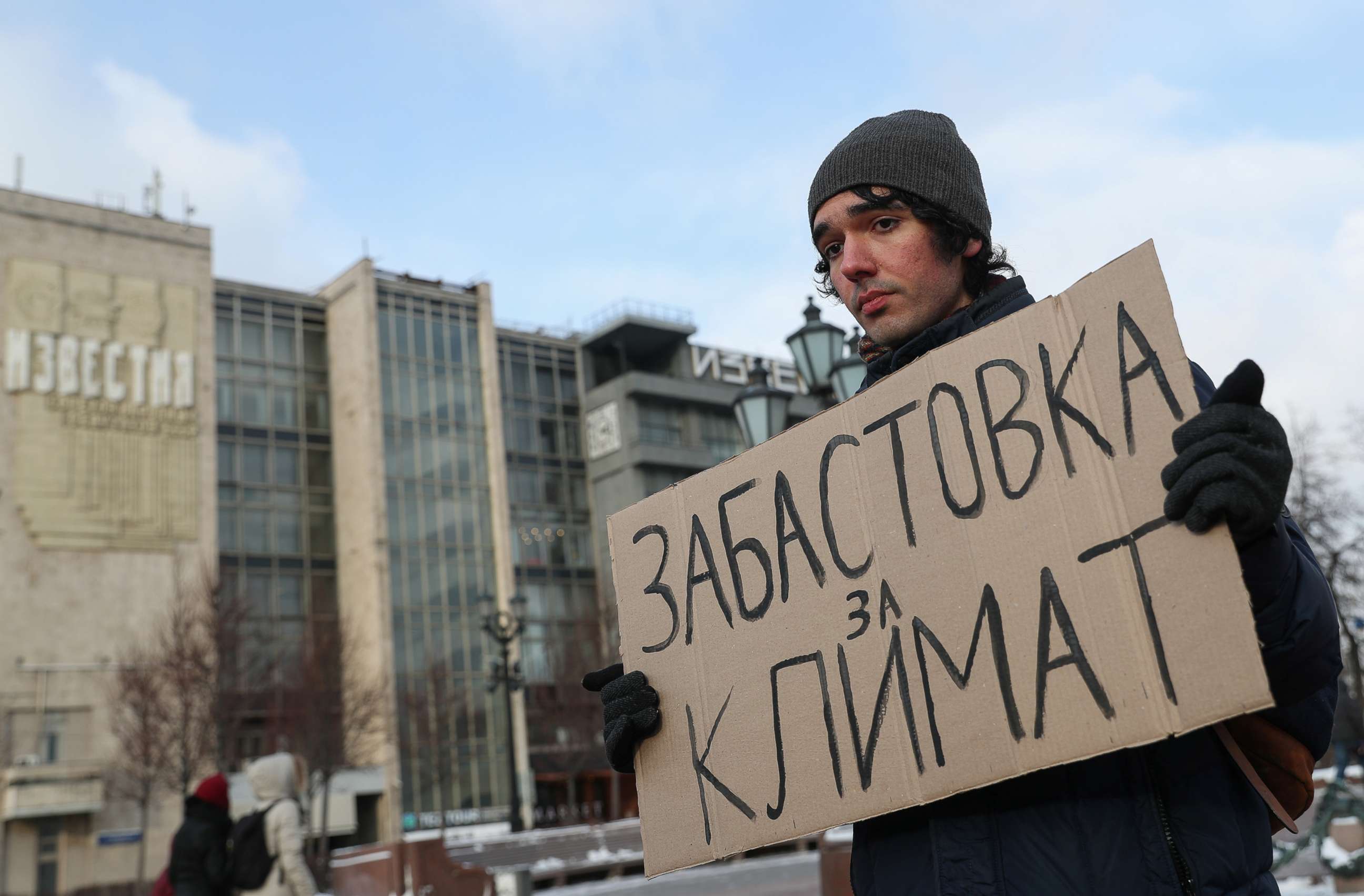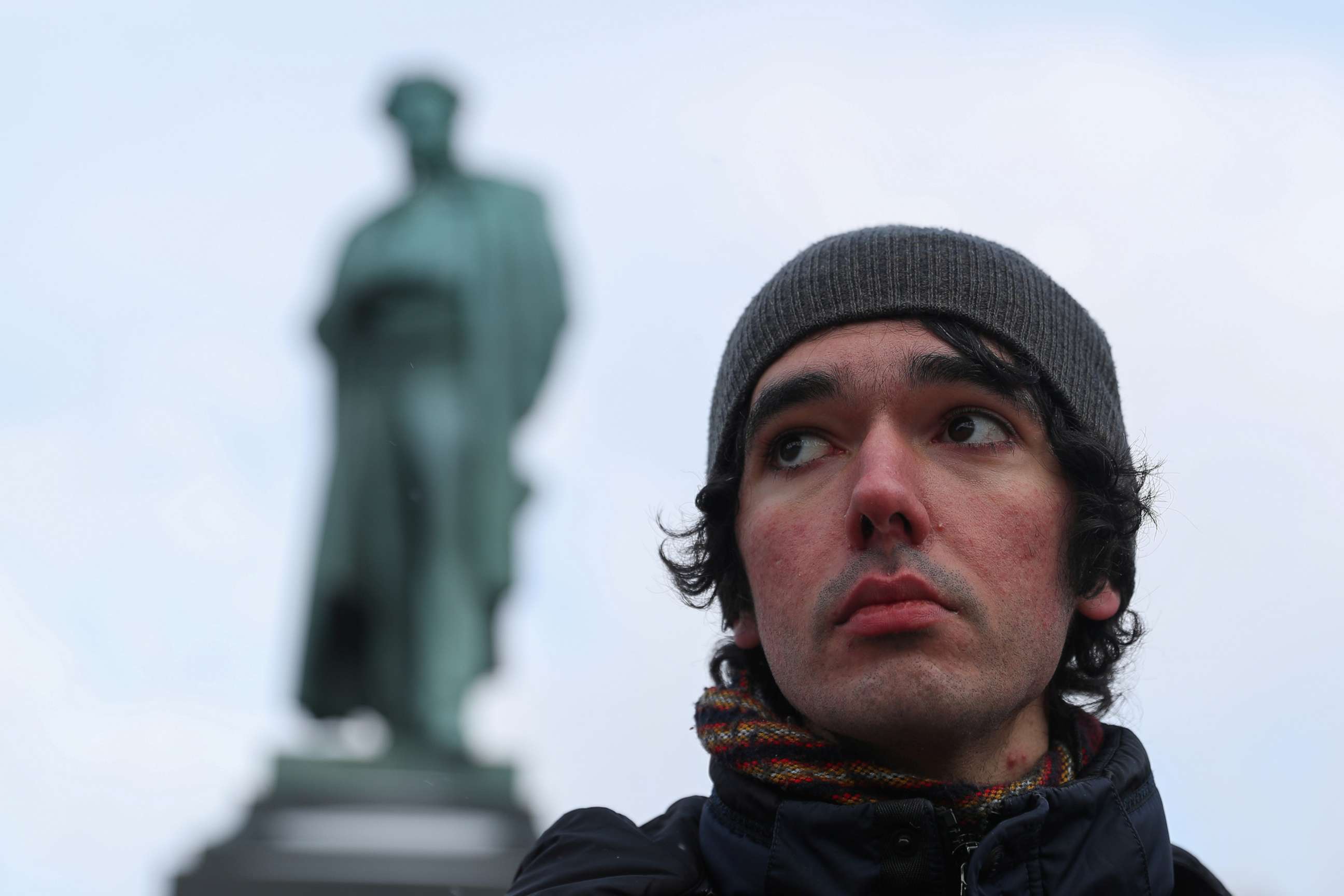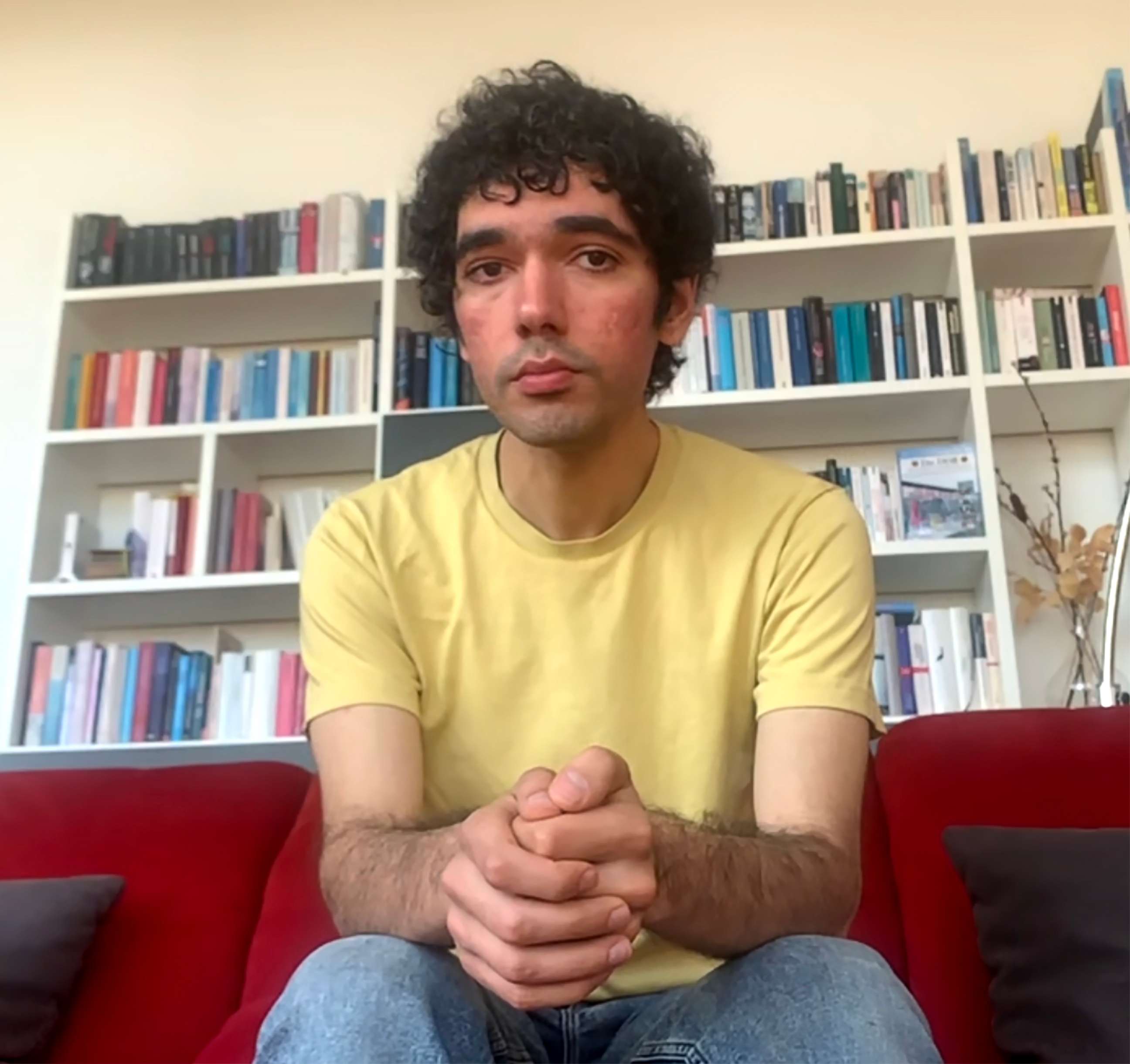Russia's 'lone climate protester' is continuing his mission amid the war in Ukraine
Arshak Makichyan, 27, fled Moscow as the war in Ukraine intensified.
Arshak Makichyan began fighting a one-man war in Russia years before troops from his country invaded Ukraine.
Makichyan, 27, known as Russia's "lone climate activist," took it upon himself to educate a country of about 145 million people about the dangers of global warming. Now that he has fled the country, he is continuing his mission to bring lasting environmental change to Russia.
Photos from 2019 show Makichyan standing alone in Moscow's Pushkin Square, a sign propped on a wooden stick as his only companion. As a teenager, his climate journey began with a concern for the environment and what individual actions he could take to lessen his carbon blueprint on the planet, such as reducing his use of plastic, he told ABC News.
Once Makichyan realized the dire situation the planet was facing, he could not believe how environmental education in Russia is virtually non-existent.
"It was so strange for me that nobody was talking about climate crisis in Russia," he said. "I was getting angry at people, that they don't want to change their habits. I realized, I need to do something more."

Makichyan took it upon himself to research what was happening. When he read about Greta Thunberg and the impact her weekly climate strikes were making, he immediately felt a kindred spirit, he said. Then, beginning in March 2019, he started to conduct his own climate protests every week, the majority of which, at first, were attended only by him.
What happened next was a 180-degree shift in focus. Makichyan, a prolific violinist who was studying at the Moscow Conservatory, turned down his chance to continue his music studies in Germany to stay in Moscow and intensify the climate fight. He felt he was in the right moment at the right time to make the biggest difference, he said.
Makichyan's friends and family questioned his motives, he said. They didn't understand why he was taking up the cause.
"For most of my friends, I was some kind of insane person who is protesting against bad weather or something like that," he said.

Eventually, Makichyan's fellow Russians began to notice his efforts. They would contact him on social media to ask questions about the movement. They would suggest different campaigns that they, as a group, could highlight on a weekly basis. His lone protests also got the attention of Thunberg herself, who began reaching out to Makichyan over social media in support.
It was "very difficult" for them to organize the movement, he said, especially given Russia's strict laws prohibiting demonstrations. Makichyan would often get heckled in the streets by police officers, but the harassment intensified after April 2019, when the Moscow Times featured him in a profile. In December 2019, he was arrested during one of his Friday protests after returning from a joint speech he made with Thunberg in Madrid.
Makichyan has been detained several more times since that incident, he said, and the situation only grew more precarious as officials in Moscow took notice of his demonstrations.
"Because they knew that it's a big movement internationally ... they were trying to somehow to take control over us," he said.
Tensions grew as a result of the pandemic, Makichyan said. He was arrested twice more in the summer of 2020. By the end of 2020, his role as a climate protester was putting he and his wife Polina, a political activist, in danger, Makichyan said.
Earlier this year, after Polina was detained twice while leaving her home for speaking out against the burgeoning invasion of Ukraine, the couple knew they had to leave Russia.
"You are afraid, like every hour, that you can be arrested even when you're leaving your house," he said. "You have with you, all this stuff. You're like prepared to be arrested."

They married on Feb. 24, the day Russia invaded Ukraine, and fled for Berlin a few weeks later, where they are now staying with friends, Makichyan said.
The war has now stifled what was a growing environmental movement in Russia, Makichyan said.
While Makichyan doesn't know if and when they will ever be able to return to Russia, he plans to keep fighting for awareness in his home country, no matter where he is residing, he said. Right now, he is focusing on campaigns to encourage the European Union to enact a full embargo on Russian oil and gas.
"We don't know what we will do next," he said. "It's very unpredictable."
ABC News' Emilie Richardson contributed to this report.




